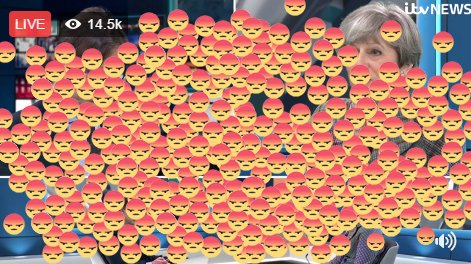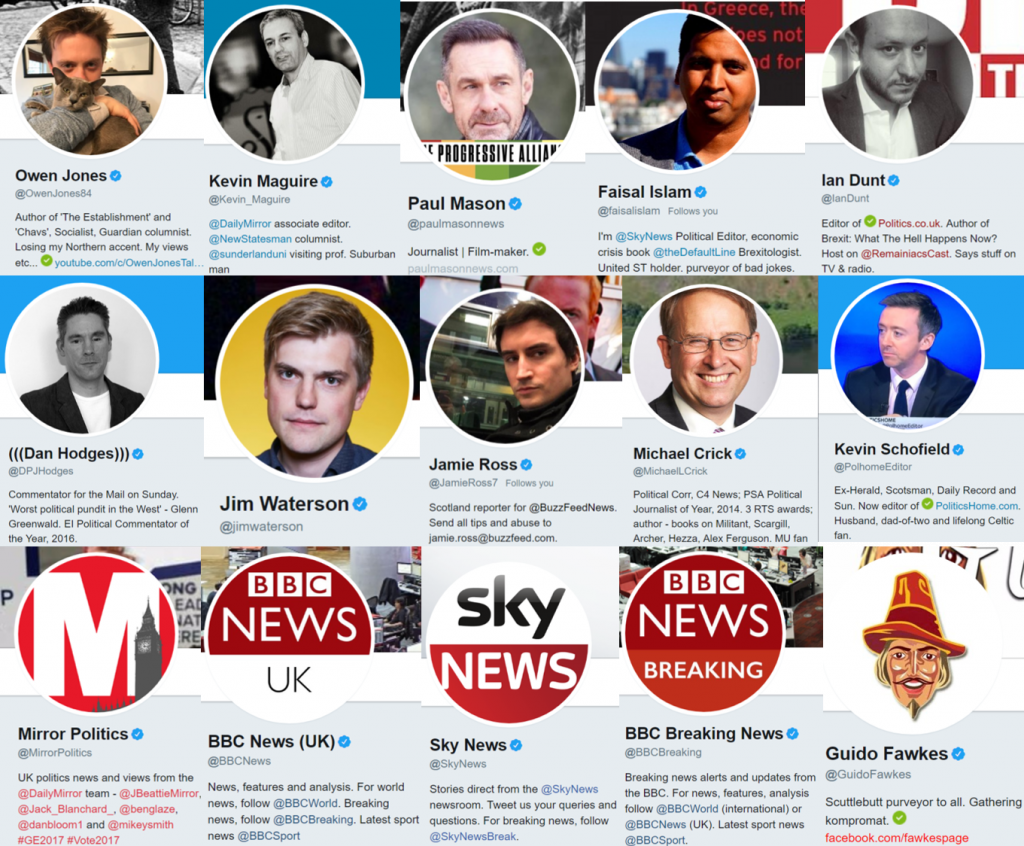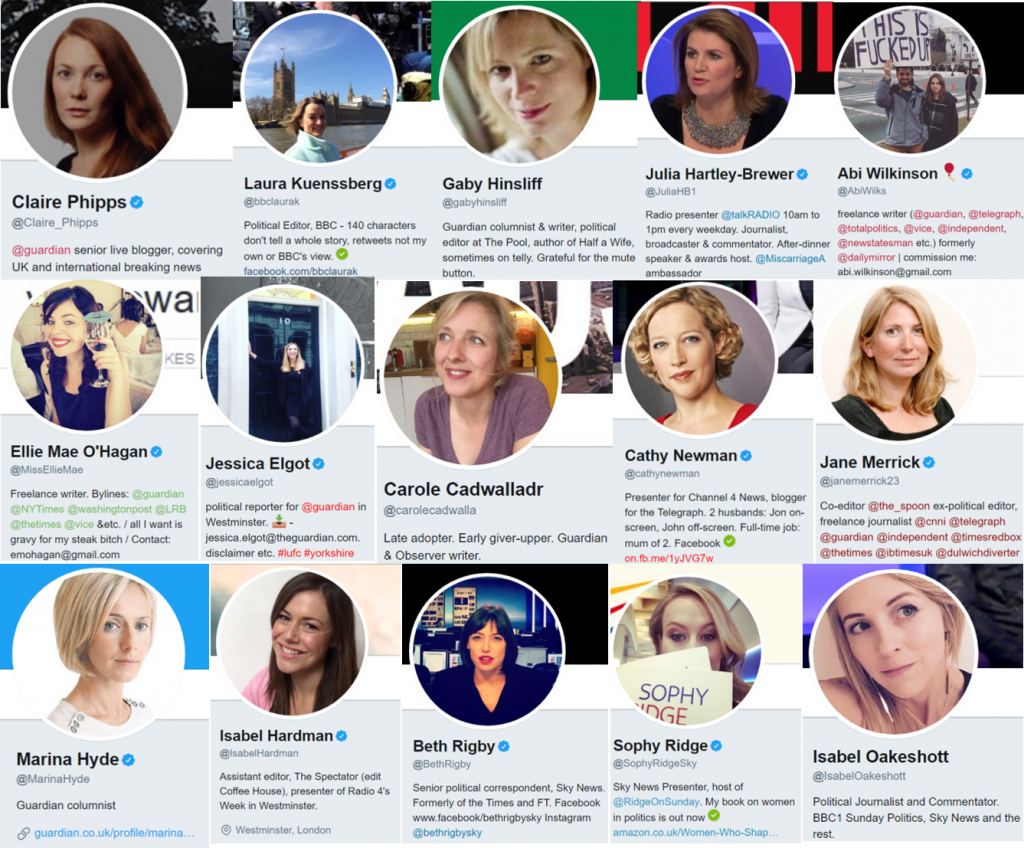Gender and Twitter
You may have seen this tweet by Lissted (‘Superhuman Social Listening’) getting shredded for being ALL MEN.
It was they said charting the top ranked journalists and media outlets in our #GE2017 Twitter Influencers analysis (based on @PoliticsUKTD data):
‘PoliticsUKTD’s results were based on the tweets of thousands of the top influencers in relation to UK Politics from right across the political spectrum. During the campaign period (18th April 2017 – 7th June 2017 inclusive) these influencers tweeted over 3 million times, including retweeting and replying to over 200,000 other accounts. The Tweetsdistilled application tracked every tweet in real time, seeking out the ones that looked to have the most potential for influence. This assessment is based on a number of factors including who is reacting and the scope and velocity of that reaction.This means to rank highly a tweet needs to be getting the attention of a lot of influential people, the wider Twitter community or preferably both.”


They responded to the huge backlash against the List tweeting: “For everyone who’s highlighted the complete absence of women in this tweet …”
For everyone who’s highlighted the complete absence of women in this tweet https://t.co/tv8W3GquuF pic.twitter.com/RgQQ6LJvM1
— Lissted (@lissted) June 27, 2017
More at their blog here.
They ask you to contrast the output of the top ranked female journalists pictured here:
I’m not really buying the idea that the men are opinionated and provocative and the women are ‘neutral’. Marina Hyde (@MarinaHyde) is hilarious, Carole Cadwalladr (@carolcadwalla) is truly brilliant, Ellie Mae O Hagan (@MissEllieMae) is hardly a shrinking violet.
Aside from the fact that Dan Hodges made the list, a fact I find mind-numbing, and that Guido Fawkes – a man for whom the phrase “clickbait crypto-fascist” was coined is also on the list is severely depressing.
There’s something else going on and its about the structural systematic exclusion of women from the public realm, the constant manels, imposed male worldview and employment culture of journalism that makes a mockery of Lissted’s analysis that basically ‘men shout louder”.
The problem is not that the list was all male. This is probably a fair (if tragic) representation. The problem is their explanation of this reality.



I argue the same thing for the Independence movement, it is male dominated. Women who attempt to join in may even find themselves “researched” in a vaguely stalkerish way by some of the men, presumably because women are suspicious, or something. I set up a Twitter list of women for indy, just to try and create a stream of women’s voices, and they just retweet men all the time.
Thank you for your courage and acuity in broaching this issue. It touches on much wider concerns like women saying “I don’t want to be the statutory woman on the panel”. To me, it is substantially about power. People follow perceived power more than service. Men win both ways, because if we give service that enhances our reputation and therefore power amongst women.
The effect, as I’ve observed it down the years and as one concerned about gender equality, is that women can become discouraged and relinquish what power they might have had. Meanwhile, some men are aware of the situation, but also aware that they need to hold their competitive edge to remain influential in the world of other men.
The downside of this is that women’s power – women’s share of space in what it means to realise full human potential – becomes less visible, less influential in terms of bang for the buck, and at worst (as my wife said just now) it can be feared.
What’s the way forward? As I see it, the problem is the veneration of outer power. Power over politics, money, sex etc. The only way I see to subvert that is to deepen to the empowerment of inner power. I have in front of me a seminal 1986 book called Heart Politics by Fran Peavey. The title speaks for itself. We need to be calling out anything that is not heart politics. We need to be asking one another, and not just the regular patriarchs, “What is your way of carrying influence in the world serving?” By their service, and who they serve, you will know them.
I also think womens’ voices are systematically silenced on Twitter. Any Internet platform which enables users to mask their real identities empowers people to behave in a manner which would not be tolerated in the real world, and especially there are a host of people – presumably, mainly men – who are violently antagonistic to women (especially young women) who have the temerity to express an opinion. You only have to look at Angela Haggerty or Vonny Moyes timelines to see evidence of this.
Under this tsunami of abuse it isn’t surprising that many women choose to step back from expressing controversial opinions or engaging in the cut and thrust of some political debates.
Anonymity has its place. It enables whistle blowing, and, in totalitarian regimes, may be necessary to enable any rational discourse on political matters. But the cost to discourse of allowing anonymity is high.
Of course it is the responsibility of men to challenge abusive behaviour towards women on Twitter, but I think if we are to achieve a more civil discourse on Scottish political Twitter, we ought all also to challenge abuse of anonymity, and to not use anonymity ourselves.